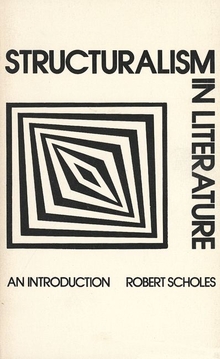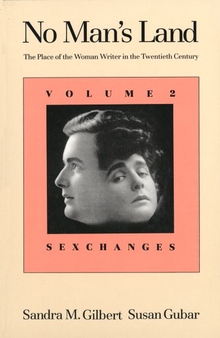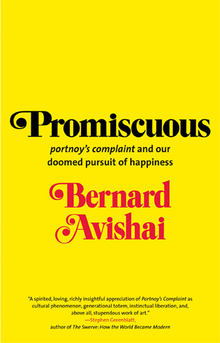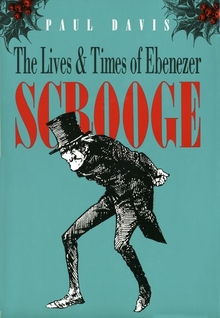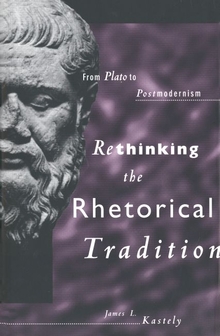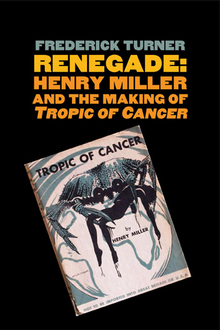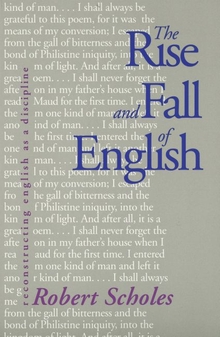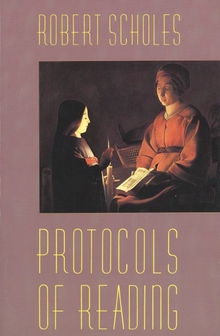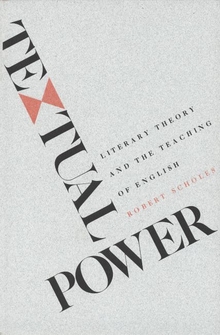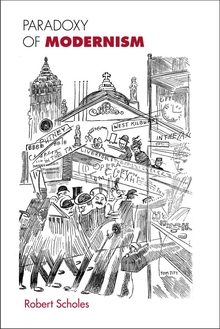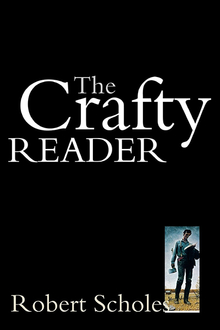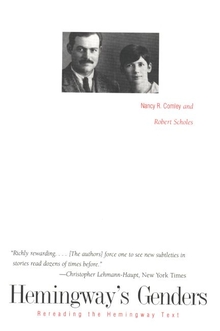Structuralism in Literature
WARNING
You are viewing an older version of the Yalebooks website. Please visit out new website with more updated information and a better user experience: https://www.yalebooks.com
An Introduction
Robert Scholes
From time to time a current of thought sweeps through a culture and moves its most disparate elements in the same direction. Such a current is structuralism. Reacting against "modernist" alienation and fragmentation, it is an integrative and holistic way of looking at the world; it seeks reality not in individual things but in the relationships among them. Its aim, says Robert Scholes, is nothing less than the unification of all the sciences into a new system of belief.
The impact of structuralism on literature and literary study is the concern of this extraordinarily lucid book. Mr. Scholes explores the linguistic background of structuralism, its historical connections to romanticism and Russian formalism, and the theory and practice of the leading contemporary structuralist literary critics.
"In Scholes’s book we have beautifully lucid, and at the same time intelligently critical, accounts of such areas of controversy as Jakobson and Riffaterre on Baudelaire’s Les Chats; Jolles’s Simple Forms and the drama speculations of Souriau; Propp on the folktale . . . and other Russian ‘formalist’ critics; Lévi-Strauss on myth; Greimas, Bremond and Todorov on narrative structure and Barthes and Genette on analysis of the meaning-structure of a literary text. . . . Those already persuaded of the importance of the field will see this book as . . . perhaps the most valuable general work available."
-- Times Higher Education Supplement
The impact of structuralism on literature and literary study is the concern of this extraordinarily lucid book. Mr. Scholes explores the linguistic background of structuralism, its historical connections to romanticism and Russian formalism, and the theory and practice of the leading contemporary structuralist literary critics.
"In Scholes’s book we have beautifully lucid, and at the same time intelligently critical, accounts of such areas of controversy as Jakobson and Riffaterre on Baudelaire’s Les Chats; Jolles’s Simple Forms and the drama speculations of Souriau; Propp on the folktale . . . and other Russian ‘formalist’ critics; Lévi-Strauss on myth; Greimas, Bremond and Todorov on narrative structure and Barthes and Genette on analysis of the meaning-structure of a literary text. . . . Those already persuaded of the importance of the field will see this book as . . . perhaps the most valuable general work available."
-- Times Higher Education Supplement
"Beautifully lucid, and at the same time intelligently critical. . . . Those already persuaded of the importance of the field will see this book as valuable for themselves or more particularly their students; perhaps the most valuable general work available."—Times Higher Education Supplement
"The impact of structure on literature, in its attempt to unify all of the sciences, is the rather overwhelming topic explored and introduced by Robert Scholes in an intellectually thrilling book, Structuralism in Literature."—St. Louis Dispatch
"The core of the book is an intelligent summary of various studies of literary forms done by the French critics of the last several decades, in particular, by Barthes, Greimas, Genette and Todorov. . . . [Scholes'] critical summaries of structuralist critics are models of clarity and unpretentiousness."—Books Abroad
"With Robert Scholes's study, [Structuralism] would seem to have found a permanent mooring readily accessible to the American critical community. . . . Scholes's introductory chapter addresses the inevitable question, what is structuralism? a question finally answerable only in philosophical terms. Scholes provides a brief historical sketch of the twentieth-century background in which structuralist thought has evolved.—Modern Language Quarterly
"This coherent study offers an indispensable 'mise au point' of the major theoretical concepts in structuralism and, as such, it will be of great pedagogical value to the general reader. . . . While discussing formal models, Scholes enunciates the principles developed by formalists and earlier structuralists (e.g. Propp, Schkhlovsky). . . . This study succeeds particularly in its presentation of two areas of structuralist activities: the syntagmatic, i.e., the interaction between a given sign and its context; the paradigmatic, which apprehends resemblance of whole classes of signs among each other. . . . A highly pertinent presentation."—The French Review
"Scholes book is designed to introduce English speaking audiences to structuralist developments in European (primarily French) literary thought. After detailing the background of structuralism in the work of Sussure and Jakobson and relating formalist and proto-structuralist modes of literary criticism to structuralist methods, the author examines specific micro and macropoetics of fiction. . . . Extremely well written and well organized. Even complex theoretical formulations and literary devises are lucidly explained so that the reader can grasp the intricacies of analyses and see their interrelations."—Review of Metaphysics
"Besides being a cogent account of structuralism as method in linguistics, poetics, and literary analysis, this study of structuralism as a 'movement of the mind' recommends it as one of the most lucid discussions available on the subject. Scholes juxtaposes the theories of Saussure, Jakobson, Levi-Strauss, Jolles, Propp, Frye, Todorov, Genette, and others in mutual criticism and illumination. He concludes by relating structuralism to romanticism and existentialism."—Religious Studies Review
"The first full-length treatment of 'structuralism' and its implications for poetics and practical criticism, this comprehensive and magisterial survey by a distinguished scholar will no doubt become a required text for all students interested in the subject. The discussions of European and American theorists, including Jakobson, Propp, Levi-Strauss, Riffaterre, Todorov, Barthes, and Genette, are thorough, lucid, and often brilliant."—Journal of Religion
"The purpose of Scholes' book, more narrowly, is to introduce European literary structuralism to an American audience, primarily an academic audience, and his purpose is well fulfilled. His account of the movement's antecedents, ideas, figures and (for narratology in particular) ramifications manages to be unacademic in the best sense. Explanations, especially of new terms and operations, are brief but clear; descriptions of books and men are fully informed and informative, critical without being captious or sycophantic; modifications and corrections are suggested without apology; and perhaps most excitingly, possibilities for a future poetics of fictions, exemplified in Scholes' last-chapter treatment of Joyce and several other modern fictionists, fascinate while they convince the newcomer. In short, this is the finest kind of introductory text; even its annotated bibliography manages to be both full and fully enjoyable."—Southern Humanities Review
ISBN: 9780300018509
Publication Date: September 10, 1975
Publication Date: September 10, 1975
230 pages, 5 1/2 x 8 1/4

